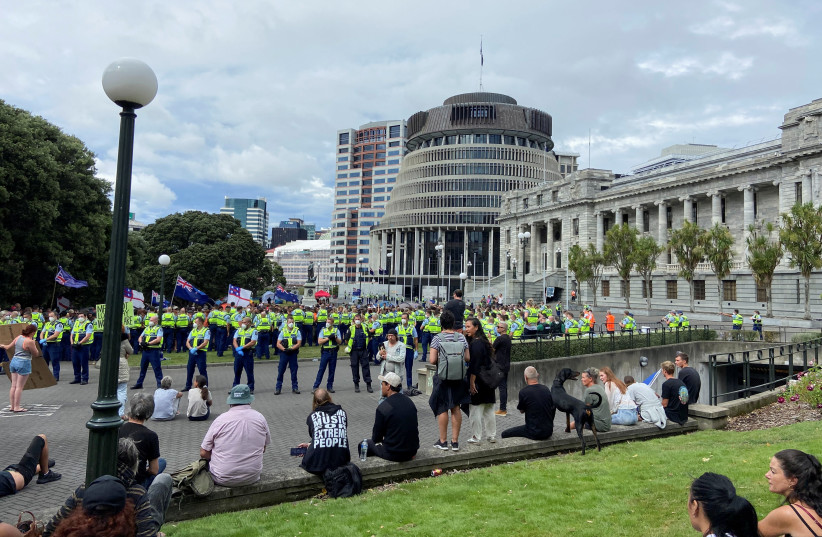New Zealand's health services are threatening to apply for temporary custody over a four-month-old boy whose parents have so far refused the use of what they call "vaccine-tainted" blood in a required open-heart surgery, according to a report from The Guardian. The boy suffers from severe pulmonary valve stenosis which inhibits the effective pumping of blood.
NZ health services applied to the court for custody under the Care of Children Act on November 28. Two days later, the High Court in Auckland held a preliminary hearing for the two parties and set the date for a full hearing to debate the case for next Tuesday, December 6.
The preliminary hearing drew a crowd of around 100 vaccine critics in support of the parents, including former TV host Liz Gunn, who is a well-known Covid-19 vaccine skeptic.
Why are the parents refusing blood donations?
In an interview given to Gunn's youtube channel "@LizGunnNZL" before the hearing, the parents explained their refusal to let their child receive regular donor blood: "It matters to everyone in our society that they have...freedom of choice. That's been completely taken away by the governments...this baby doesn't seem to qualify to have freedom of choice. They want to...conduct medical experiments with him with unknown results. We're not prepared for that! We're not prepared to offer up our baby to experimentation."
NZ health service's lawyer Paul White stated at the hearing that in similar cases, the child would have been treated weeks ago already.
"He [the baby] needs the pure blood."
The babys father
The family’s attorney Sue Grey, another well-known Covid-19 vaccine skeptic and the co-leader of the New Zealand Outdoors Party, characterized the case as "unusual," stressing her belief that unlike in other cases where parents refused care, in this instance “[The] parents want better treatment for their child than the state is offering,” The New Zealand Herald reported.
“We have 30 or so donors with suitable, compatible blood who are willing and able to make that blood available for this baby,” she added. “All they need to say is okay we are here to co-operate and listen to our clients.”
Addressing the blood bank, the baby's father stated in another clip on Gunn's youtube channel: "He [the baby] needs the pure blood. He needs blood that is the same blood from two years ago, which has no experimental vaccines in it. So please, approve the donation."
Experts respond to the claims
NZ's blood bank service NZ Blood responded: “All donated blood also gets filtered during processing, so any trace amounts that may still be present poses no risk to recipients."
"We do not separate or label blood based on a donor’s Covid-19 vaccination status.” It added there was no evidence that previous vaccination affected the quality of blood for transfusion.

Otago University immunologist and associate-professor James Ussher, told NZ media-org Stuff that if the vaccine would make it into the blood, traces would be very short-lived.
“There is some evidence that trace amounts of the RNA can be detected in blood for several days post-vaccination. However, it will be a tiny fraction of the vaccine dose ... It poses no safety concerns.”
Asked if, from a scientific perspective, the blood of a person vaccinated against Covid-19 would be any more dangerous than blood from someone who didn't take the vaccine, he simply answered: "No."
